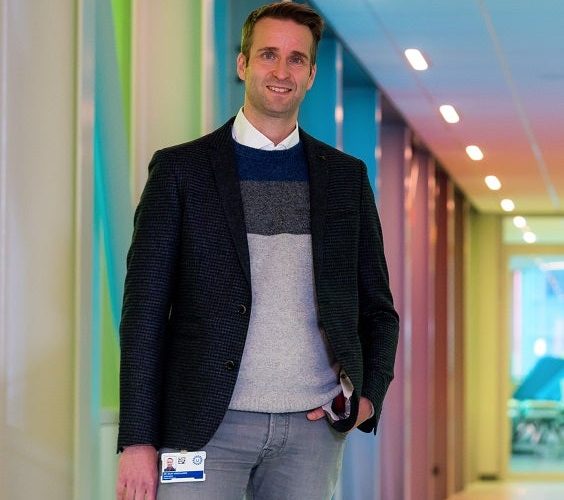“Sleep should be considered one of the most important activities within the 24 hours of time we have per day. Moreover, it is just as important as healthy nutrition and exercise” states researcher Olaf Verschuren of the Knowledge Center Rehabilitation Utrecht. Verschuren is conducting research into the 24-hour activities of children with Cerebral Palsy.
‘It is brainawareness week and today in particular world sleep day. A great opportunity to become aware of how the two are inextricably linked,’ Verschuren starts his talk. Within pediatric rehabilitation, Cerebral Palsy is a common condition. Two out of every 1,000 children have it. Cerebral Palsy is an umbrella term for disorders in a group of children in whom a brain injury has occurred during pregnancy or (shortly after) childbirth. It often leads to a combination of symptoms that cause problems with movement and sleep. The effects may be minor where the child can function independently. There are also children who are severely motor impaired and cannot keep up with society. Proper rehabilitation is the key to possibilities in development. What is important here?
‘We know that healthy nutrition and exercise are important. What is still understudied is the role of sleep. If you look at elite athletes, they see sleep as ‘recovery time after hard training.’ This is how we should also see it when it comes to children who undergo strenuous physical and mental efforts on a daily basis during rehabilitation. Sufficient and good sleep is crucial for proper recovery. The better you sleep, the better you recover and perform. This is true for everyone.” In Australia and Canada, there is a 24-hour activity guideline for healthy children. It is extraordinary that that guideline was not there precisely for children who need it extra.
Olaf researched how to make understanding 24-hour activity part of care in children with Cerebral Palsy. ‘We developed a screening list and guideline for this that addresses the amount of physical activity and sleep the children need. For over 80% of children, but especially those with more physical challenges, it is difficult to get enough exercise. This often directly affects sleep for both children and parents. Through the use of the screening list and the 24-hour activity guideline, we can work with the children and parents in the rehabilitation process to see what can be managed when it comes to movement and sleep. By talking about that and coming up with concrete solutions, you get into a more upward spiral and that has an effect on the rehabilitation and overall development of the child, and the parents.
Olaf Verschuren’s research is now a standard part of care at De Hoogstraat. Parents complete the 24-hour activity list prior to the consultation hour. Olaf: ‘By using this screening list parents are already thinking about these topics in advance. That makes it a topic of conversation with the doctor’.
‘In recent months, we have distributed the knowledge and materials nationwide within the rehabilitation institutions in the Netherlands through two training days. With this we hope that all children with Cerebral Palsy and their parents will be made aware of the importance of exercise and sleep.
The innovation research project led by Olaf Verschuren has been nominated by the Federation of Medical Specialists for the Science and Innovation Award 2021.
